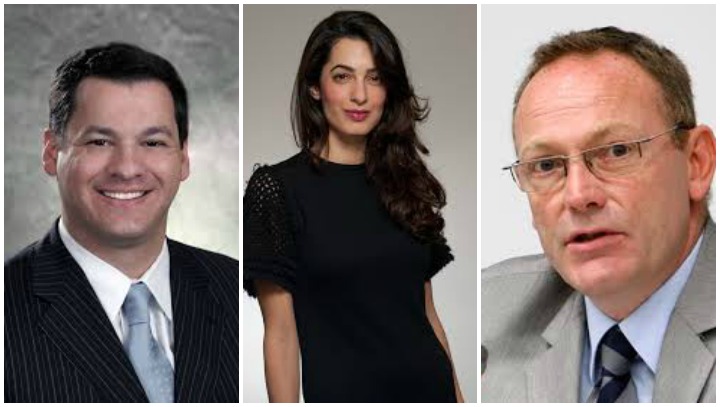This article is by Sighpad Mohamed, who writes the the blog Hudhuhandhu.com
Vote a government in. Give them a year of two. Take to the streets. Mount pressure, topple the elected leader and change the government. Rinse and repeat as needed. Maldivians seem to have taken to this formula like a duck to water. This has to stop.
When former president Mohamed Nasheed was ousted in a coup d’état on February 7, 2012, he warned of more unlawful changes of the government in the Maldives’ future. Take in to account the events of May Day’s mass antigovernment protest #EkehFaheh15.
President Abdulla Yameen denied he was under any pressure, but the record number of press conferences he appeared in and tweets by officials indicate otherwise. The government was indeed jittery. But president Yameen’s disregard for the people was blatant when he appointed his tourism minister Ahmed Adeeb as his representative for negotiations, when the opposition had accused Adeeb of corruption and had called for his resignation.
Despite intimidation and harassment, tens of thousands of people took to the streets on May Day in the largest antigovernment protest in a decade. Protesters hoped president Yameen would relent. But the police cracked down brutally and hundreds were arrested and injured. It was clear the police were targeting vocal social media critics with the arrest of Yameen Rasheed, Waddey and Hamid Shafeeu. But unlike February 7, 2012, the government remained unchanged, and the ruling party held fireworks the next day to celebrate its “victory.”
Maldivian history is rife with examples of coup d’états, and they will continue unless the elected governments listen to its citizens’ concerns, and work for their development, not for the benefit of a handful of loyalists.
I do not support coups, but when the commonwealth backed commission that investigated president Nasheed’s ouster in 2008 ruled the transfer of power legal, despite a police and military mutiny, it has opened the doors for citizens to once again resort to the same means to topple a government. But deep in our hearts, we know this is not right. The power lies with the people who cast their votes to elect a leader for five years, not one, two or even four, but five. Let us not forget that. But the elected government must not forget they are elected to do right by the people. Not to fulfill their own agenda by pocketing the taxpayer’s money. And if the government does not rectify its mistakes, there will be more coup d’états.
Prior to 2008, Maldives weathered through 30 tough years of torture and fear, where individuals who simply expressed the desire to see a different president were jailed and tortured. They came out from jail only as a shell of the person they had been. I weep over the many accounts of torture that remain untold to this day, of the various ways former president Maumoon Abdul Gayoom’s regime ruined the lives of many families by rendering their loved ones incapable of taking care of their personal needs after being “reprogrammed” at the infamous Dhoonidhoo jail.
But Maldivians rose up and they embarked on a nonviolent struggle. It was not easy, but we persevered.
Little now remains of the democratic changes we fought so hard for. The government is out to silence all dissent. With all the leaders of the opposition now behind bars, the Maldives is on the verge of becoming the next Egypt, where a revolution was undermined and a former general continues to consolidate his power by massacring his people and jailing all of his opponents.
The fear and intimidation we thought were a thing of the past is now back. Ruling party MP Ahmed Nihan has threatened to dismiss opposition supporters from civil service jobs, and urged the government to cancel the licenses of the scores of boats that had carried thousands of islanders to Malé for the protest. I for one, have a foreboding feeling that we are once again headed towards the era where Maldivians huddled in fear at every second of every day.
The Maldivian government is adamant that its foreign policy reflects its domestic tyranny, and that’s exactly what’s being conveyed through the diplomatic channels. But the single flickering light at the end of this dark tunnel is the international community and its sanctions.
President Nasheed calls for perseverance from his jail cell, where he is to spend the next 13 years of his life, all because he fought for dignity and equality for the people of the Maldives. My wish for the Maldives and my people is simple, one that aligns with the vision that president Nasheed has for this country. That we be a prosperous nation, a just and able society, one in which the government serves all of its people, regardless of their political ideology, and one where the government listens to our concerns without declaring war on us when we oppose the government.
Our future is bleak. The people continue to struggle, they continue to raise their voices, despite the fact the government celebrates the brutalizing and jailing of hundreds with fireworks. But if this tyranny continues, a civil war is not far off. The scars of the 2012 coup may have scabbed over, but the wounds are deep, festering with hatred, resentment and a deep disillusionment with a justice system that continues to fail us. Only time alone can tell if those of us, who are fighting for human rights, justice and democracy will emerge victorious, or whether we will be browbeaten to embrace a culture of corruption, nepotism, injustice and brutality for years to come.
All comment pieces are the sole view of the author and do not reflect the editorial policy of Minivan News. If you would like to write an opinion piece, please send proposals to [email protected]

